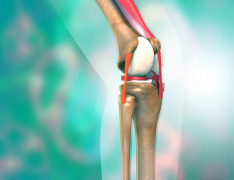Custom-designed enzyme
Product description
Allozymes leverages our proprietary technology to develop custom-designed enzymes for sector-agnostic use. Allozymes microfluidics technology builds millions of enzymes every day, increasing the speed of production of custom enzymes that are used in a variety of outlets.
Traditionally it is hard to scale anti-aging material from plant resources. One customer of Allozymes was using 10 tonnes of tomato skin for just 3kg of desired cosmetic ingredient. For reference, that amount of tomato skin would fill the entire country of Singapore, only to generate 3k of product. By looking at the tomato plant, we worked out which enzymes work together to produce the end ingredient; engineered these enzymes; and placed them in the yeast to ferment the desired ingredient. The client can now generate all the ingredients they need through fermentation. That is one example of how our enzymes revolutionized these processes.
Another way our revolutionary technology disrupts the industry is through fiber-derived sugar. We are leveraging our proprietary technology to engineer custom enzymes for the biomanufacturing of fiber-derived sugar from industrial lignocellulosic biomass. Lignocellulosic biomass, for example, includes rice husk, sugarcane, etc. This results in the development of a fiber-rich and healthier sugar alternative, having lower caloric rates and glycemic index, lower sugar content, and higher fiber content, without compromising on the sensory and processing properties. We received a $1M grant to develop a proof-of-concept and scale up the development. These engineered enzymes could be tailored towards targeted ingredient profiles for any desired product category or application need.
Read more
Traditionally it is hard to scale anti-aging material from plant resources. One customer of Allozymes was using 10 tonnes of tomato skin for just 3kg of desired cosmetic ingredient. For reference, that amount of tomato skin would fill the entire country of Singapore, only to generate 3k of product. By looking at the tomato plant, we worked out which enzymes work together to produce the end ingredient; engineered these enzymes; and placed them in the yeast to ferment the desired ingredient. The client can now generate all the ingredients they need through fermentation. That is one example of how our enzymes revolutionized these processes.
Another way our revolutionary technology disrupts the industry is through fiber-derived sugar. We are leveraging our proprietary technology to engineer custom enzymes for the biomanufacturing of fiber-derived sugar from industrial lignocellulosic biomass. Lignocellulosic biomass, for example, includes rice husk, sugarcane, etc. This results in the development of a fiber-rich and healthier sugar alternative, having lower caloric rates and glycemic index, lower sugar content, and higher fiber content, without compromising on the sensory and processing properties. We received a $1M grant to develop a proof-of-concept and scale up the development. These engineered enzymes could be tailored towards targeted ingredient profiles for any desired product category or application need.
Company information
Custom-designed enzyme
Products from other suppliers
Custom-designed enzyme











